560.000 EUR
5 dorm
233 m²
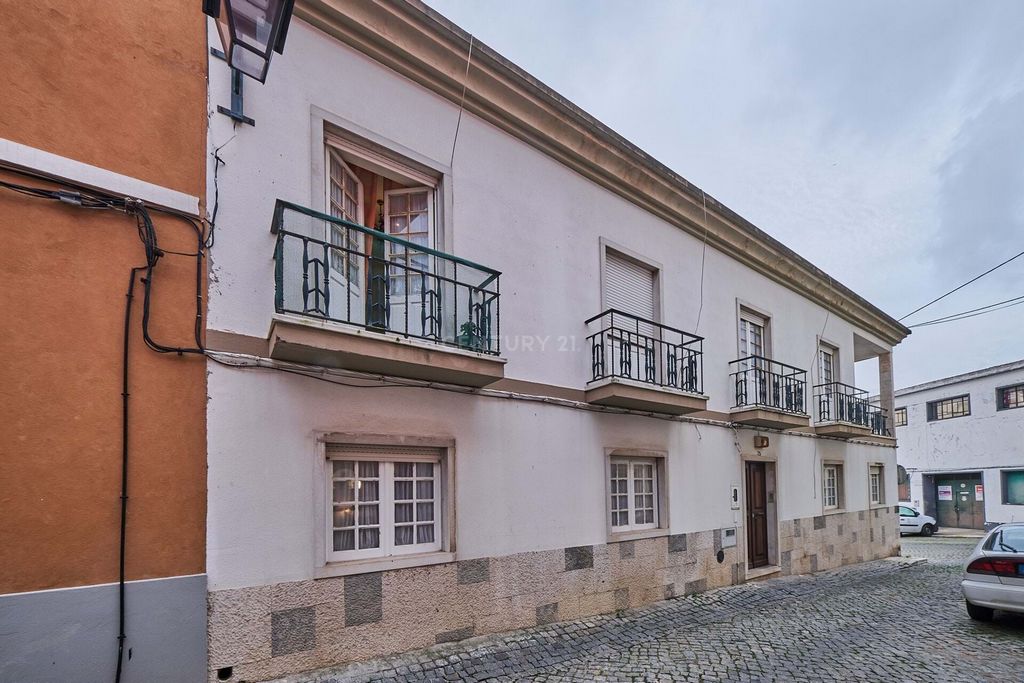
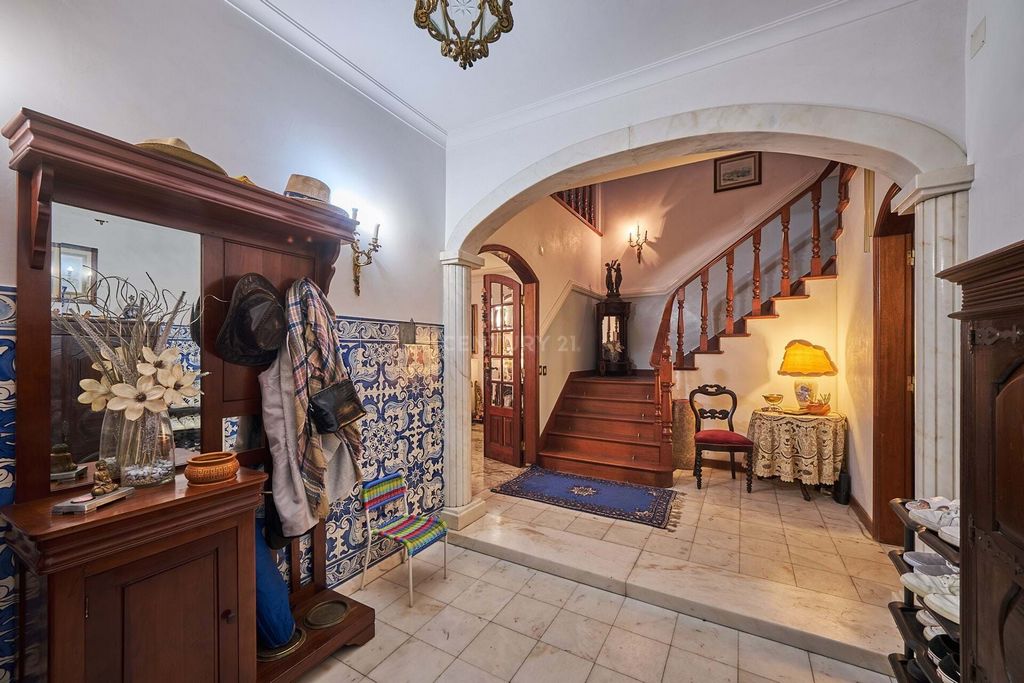
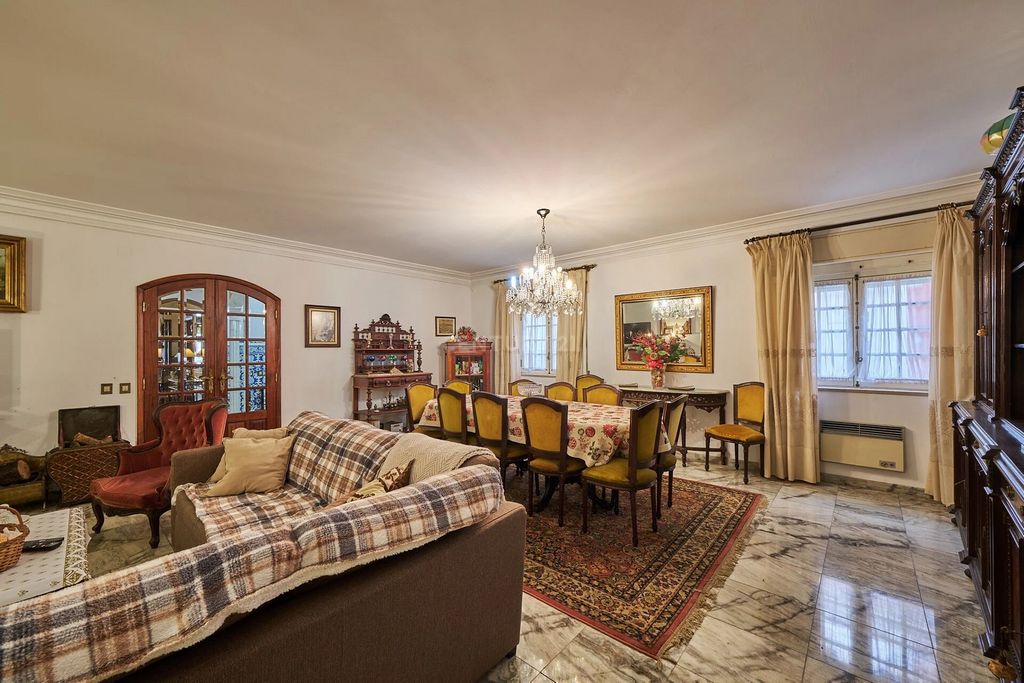
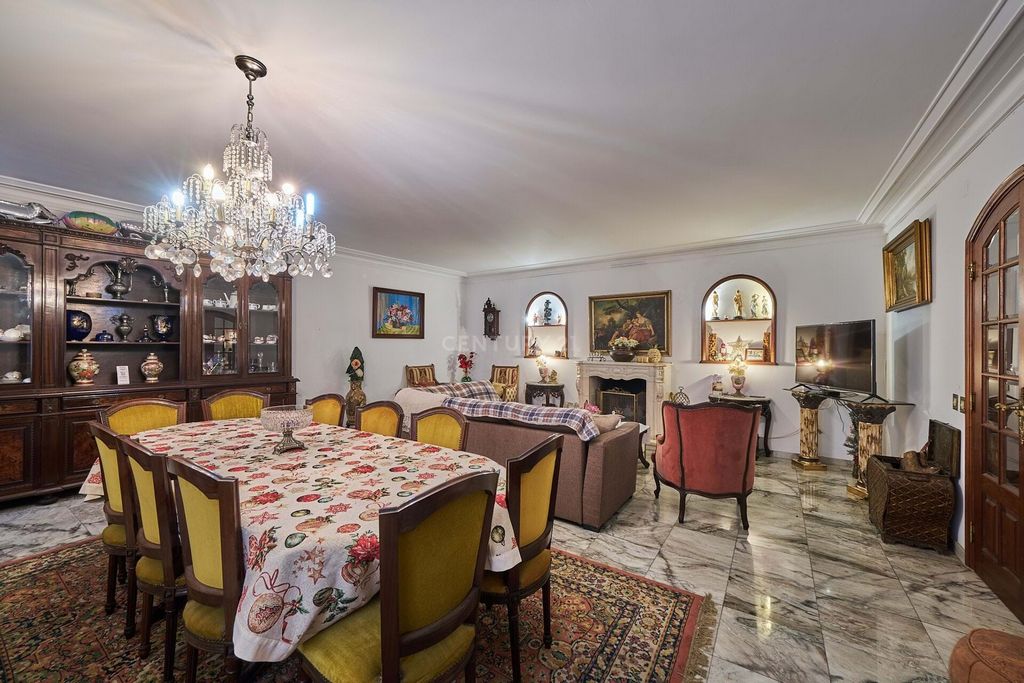
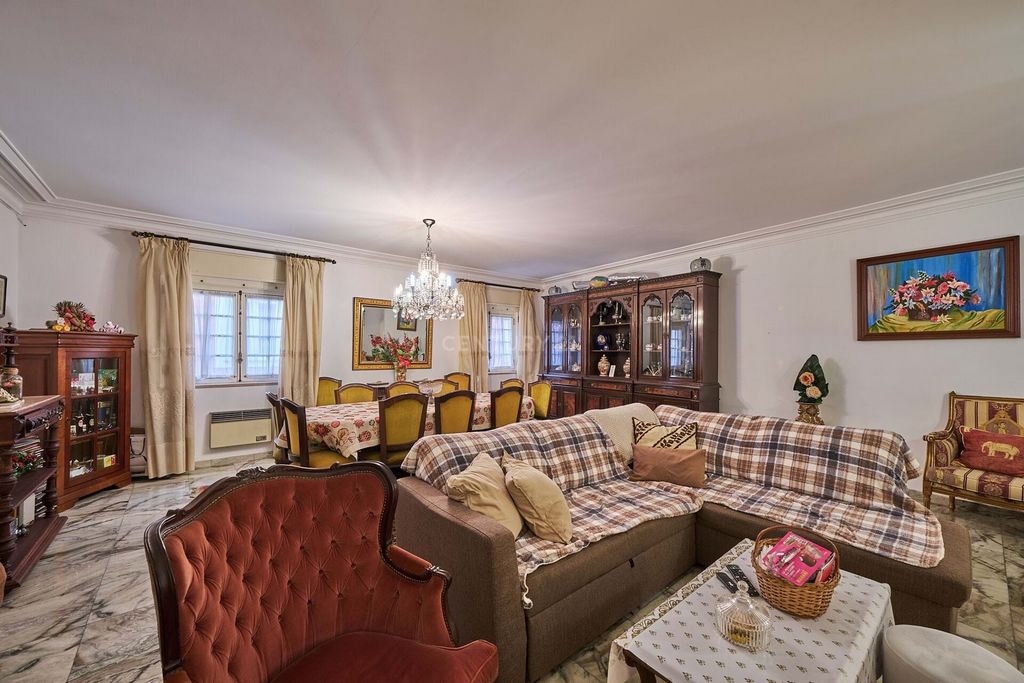
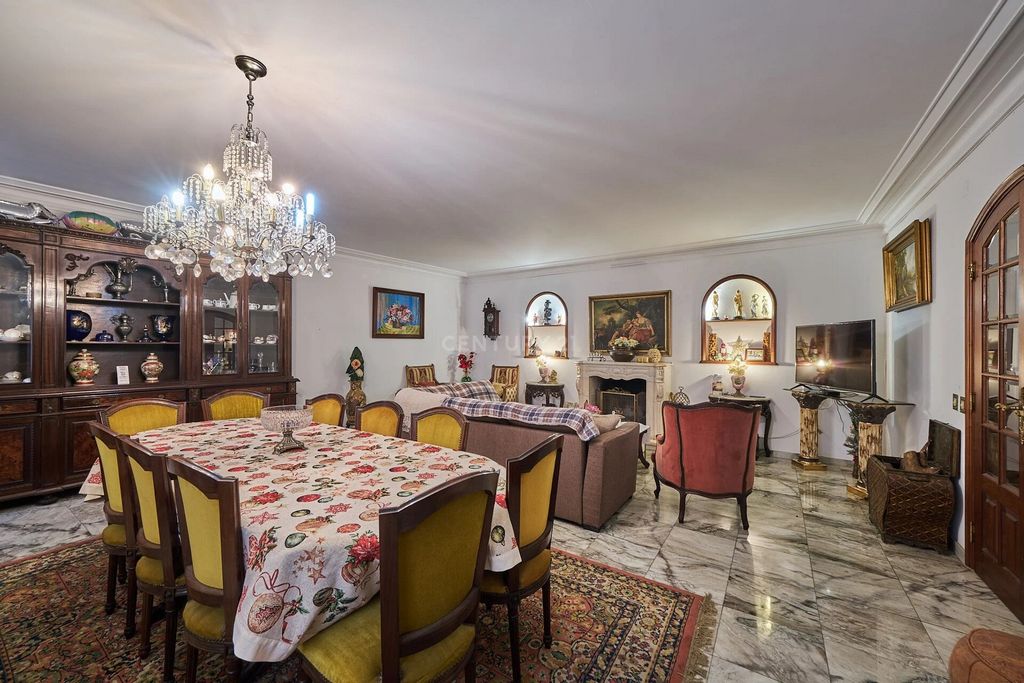
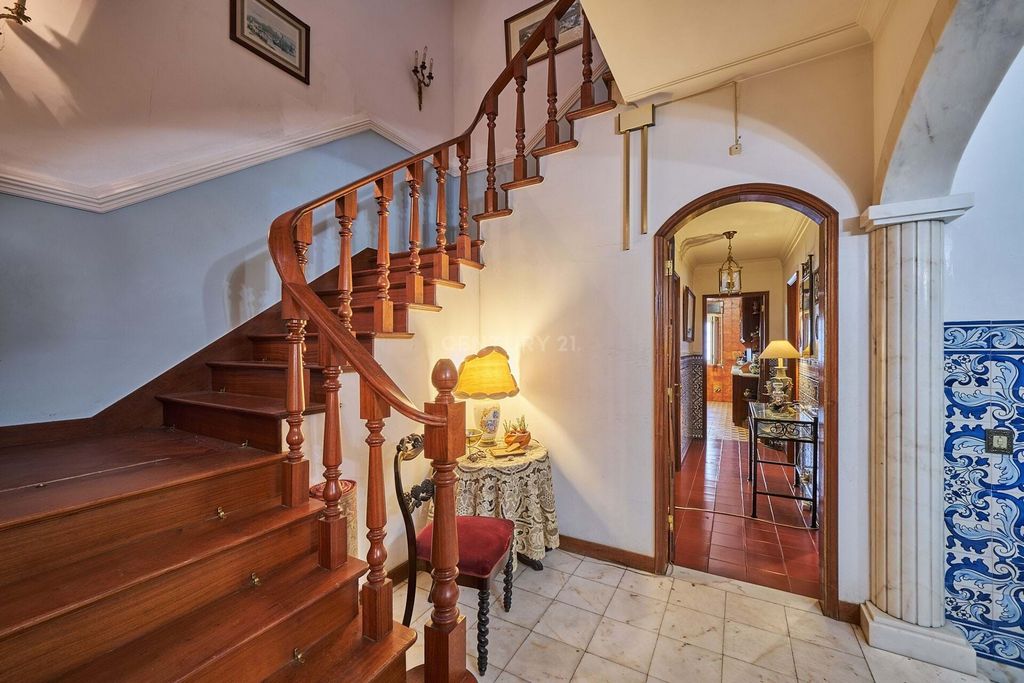
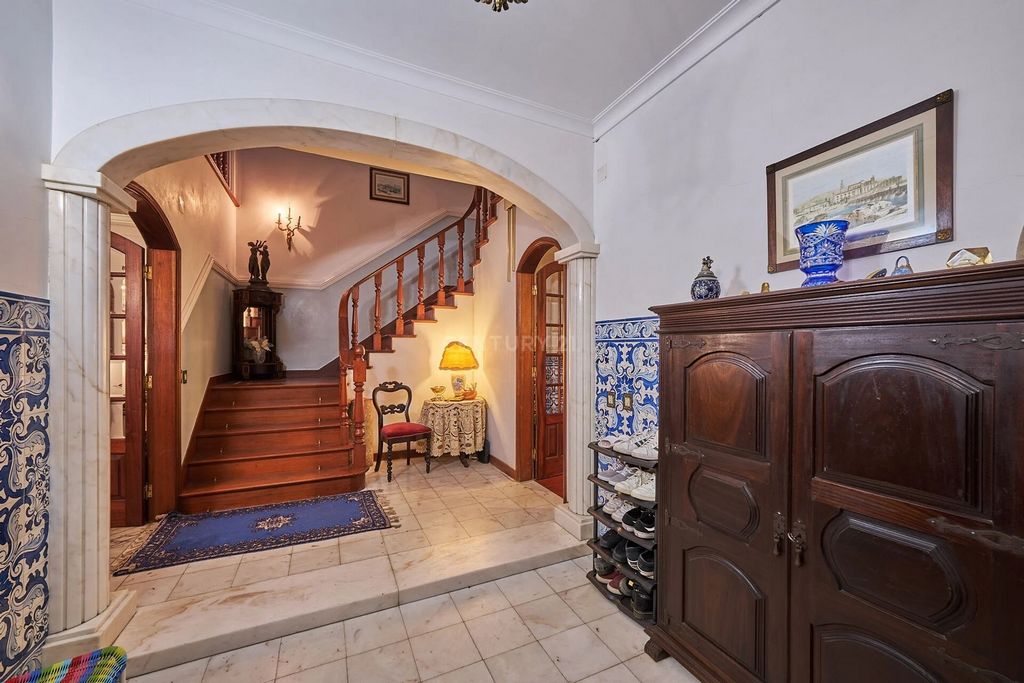
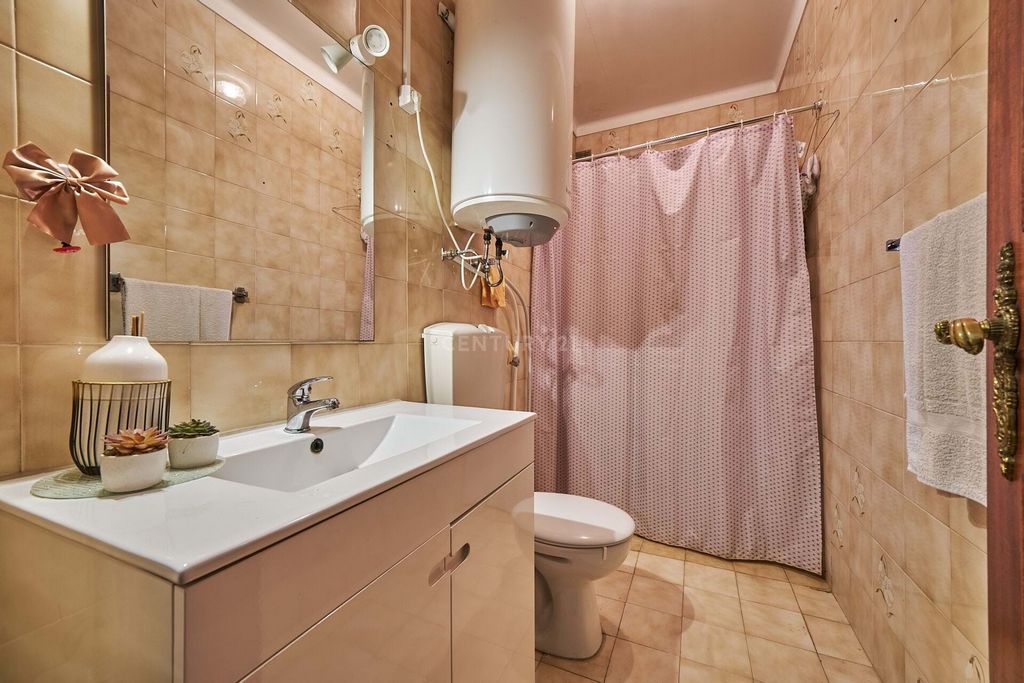
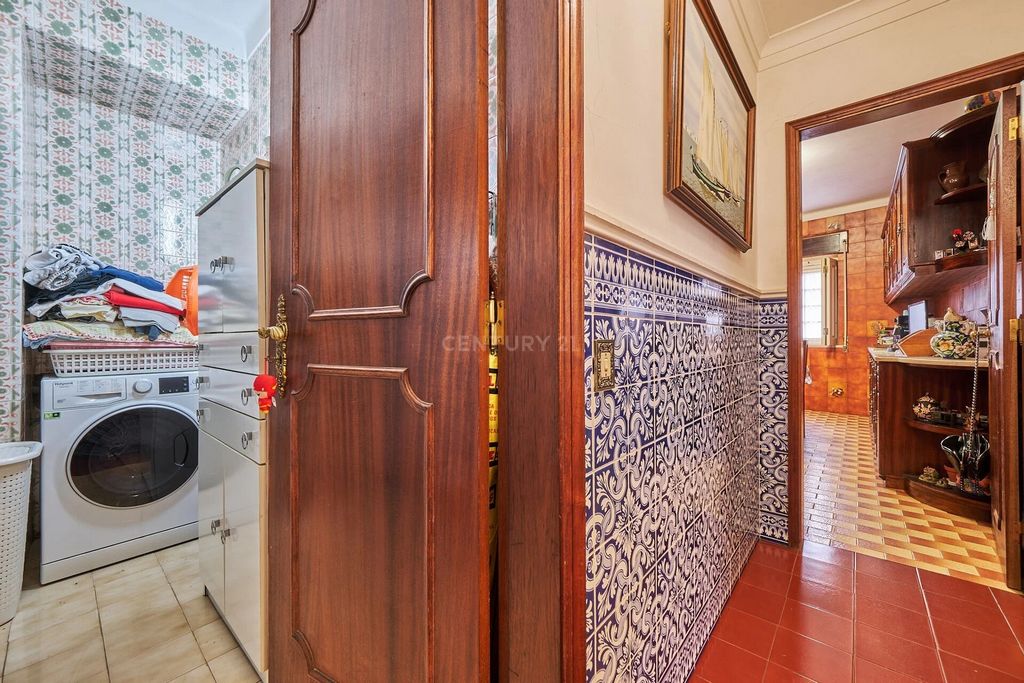
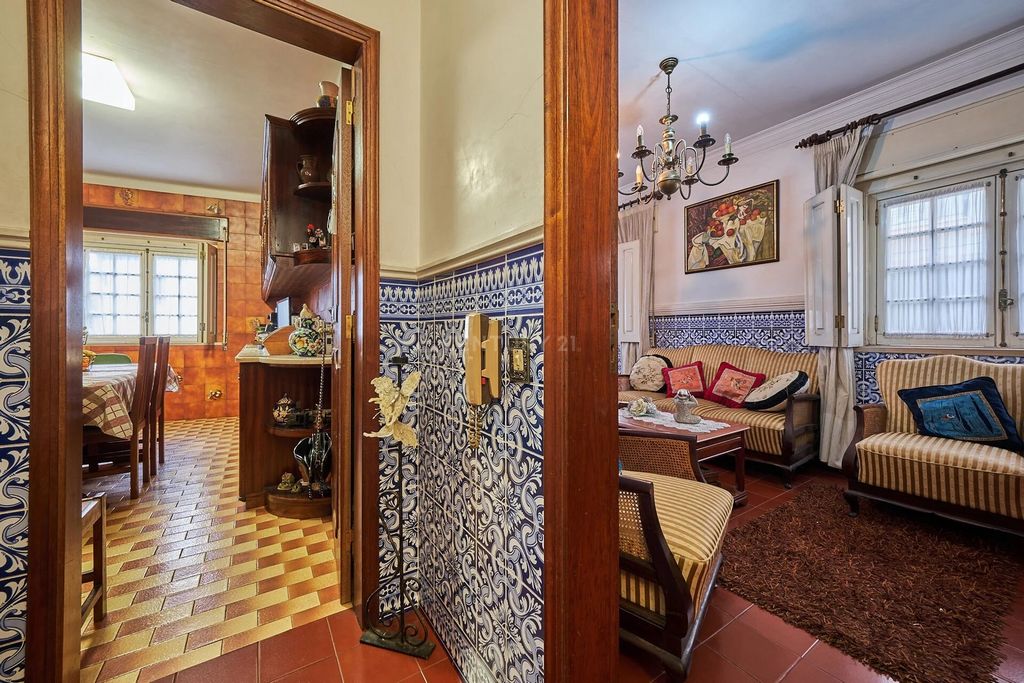
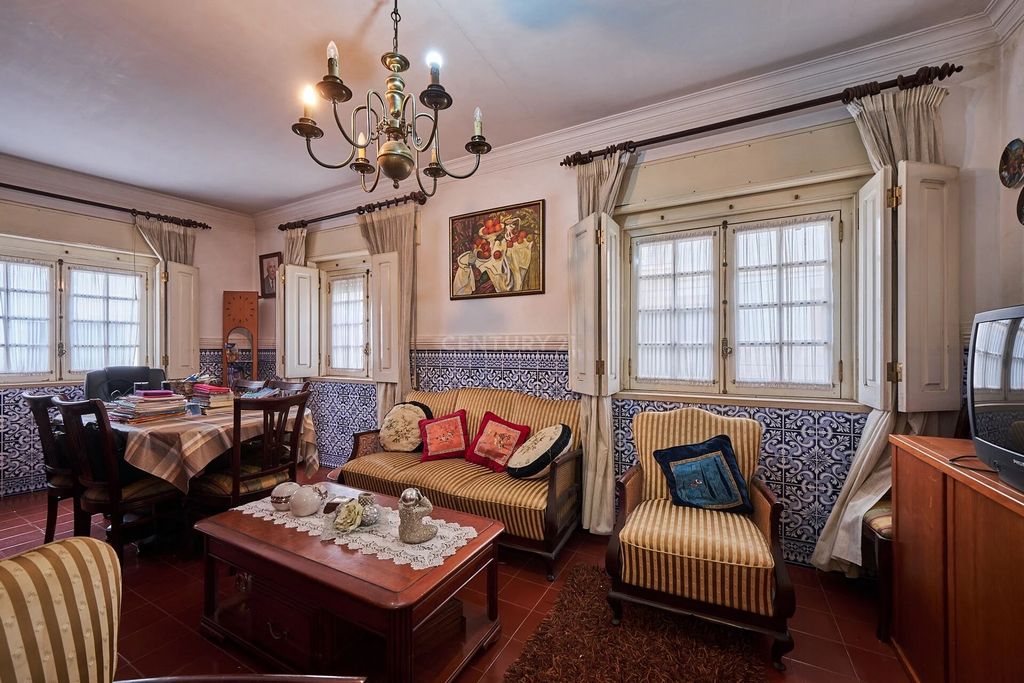
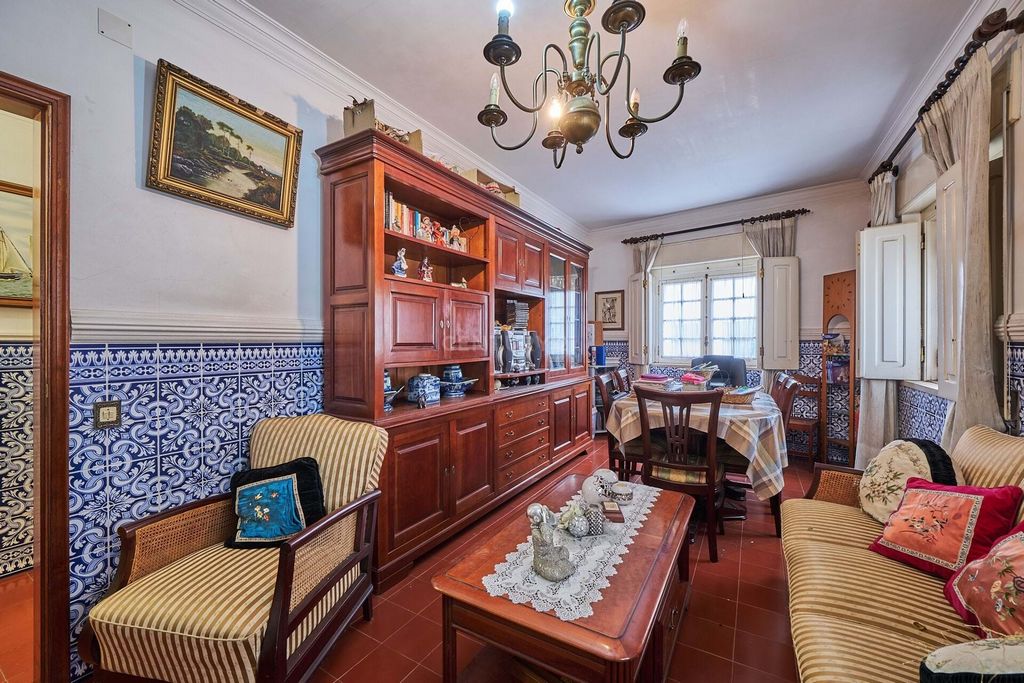
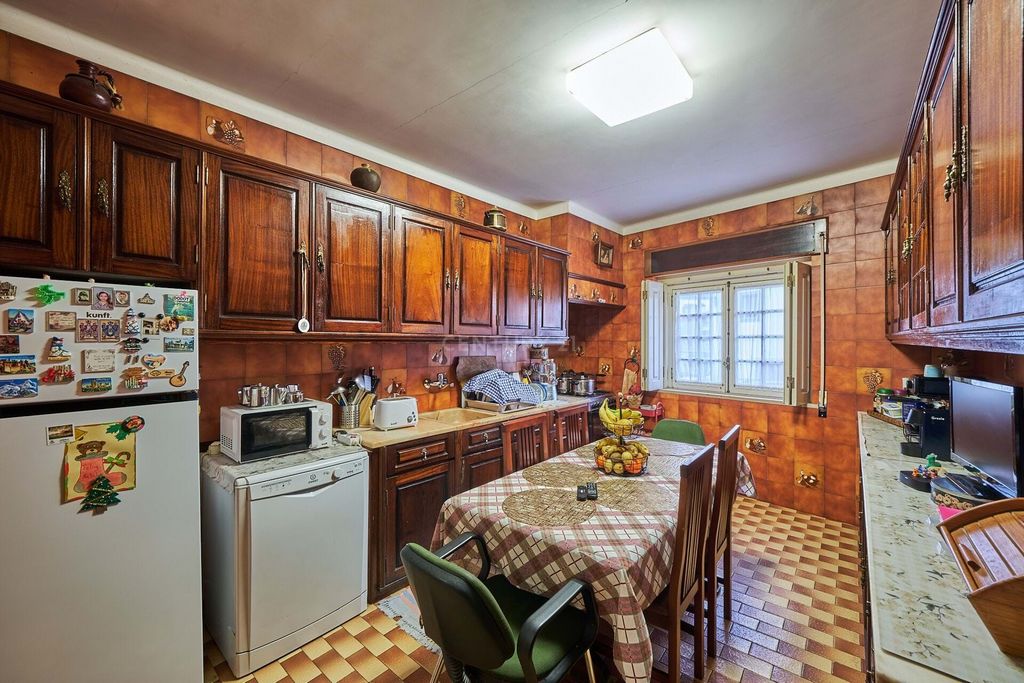
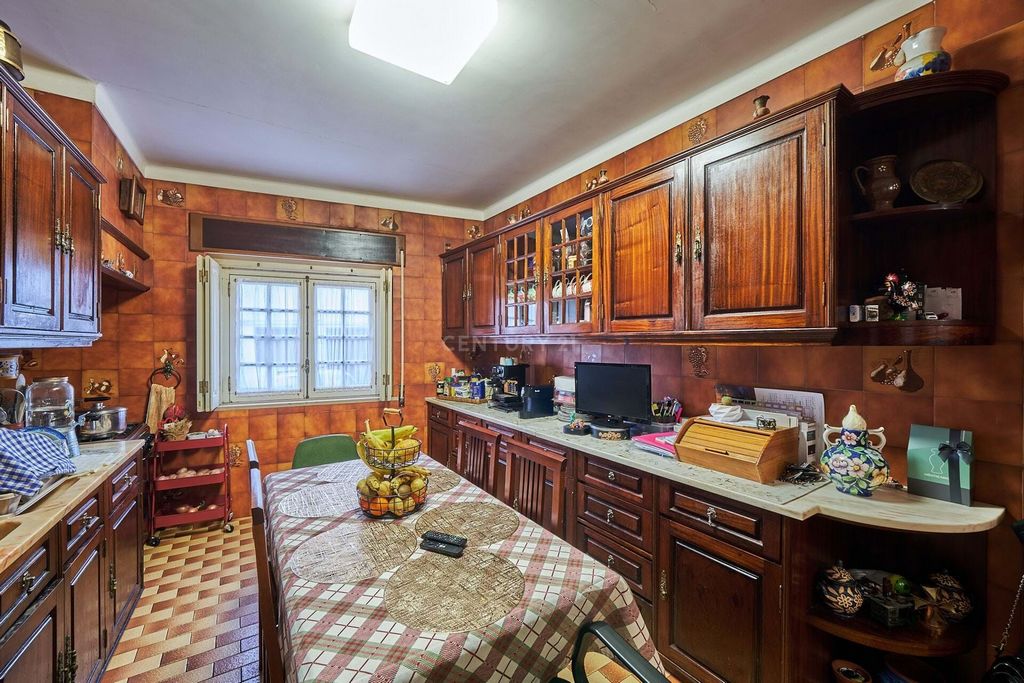
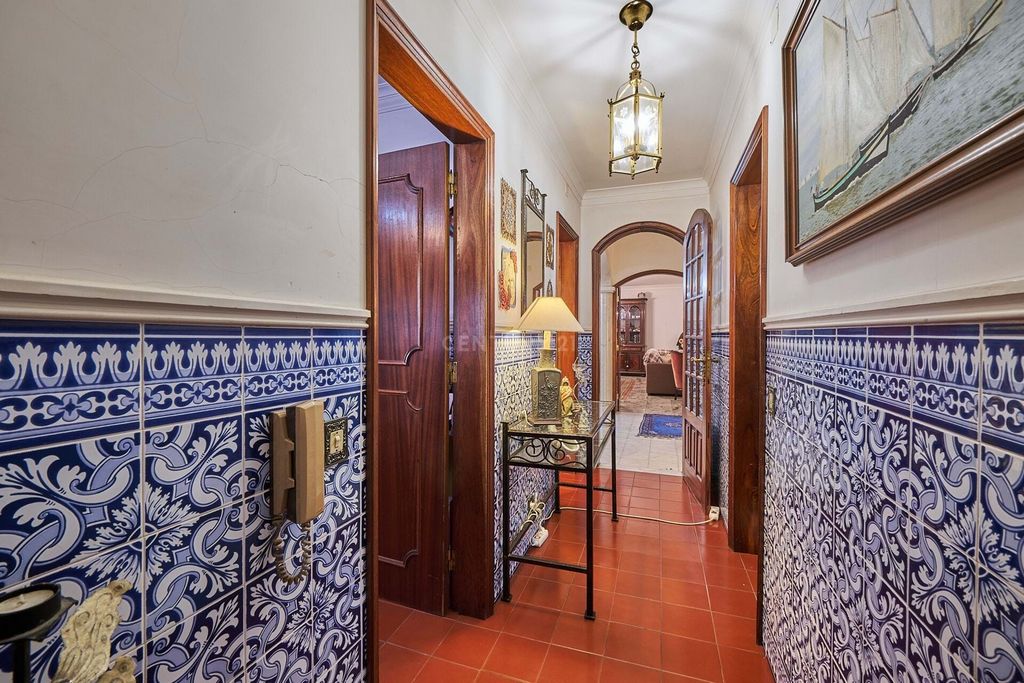
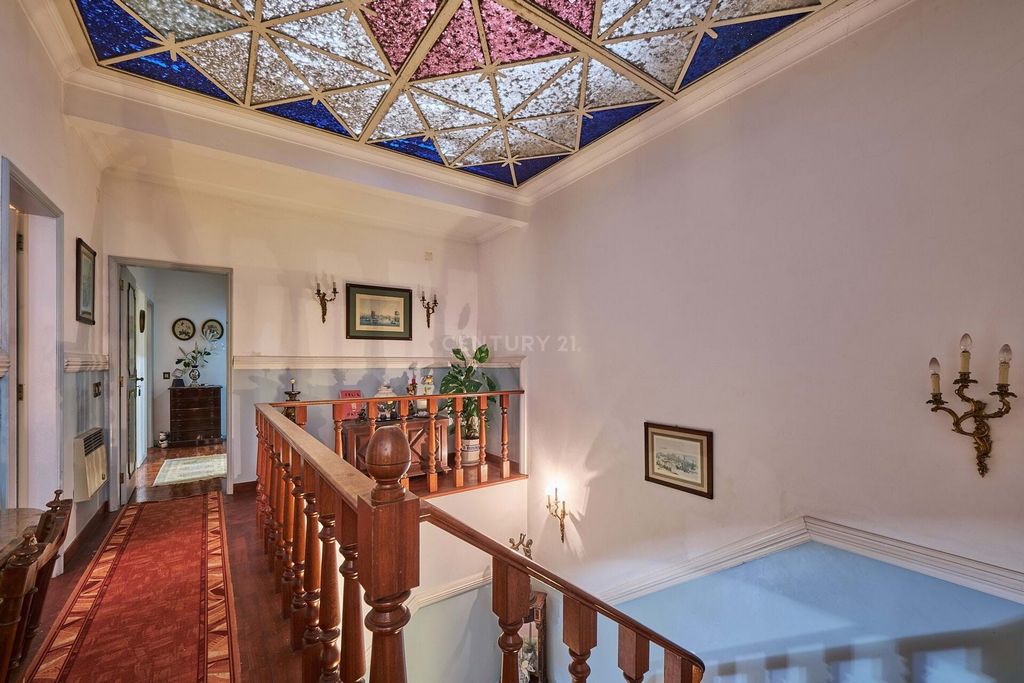
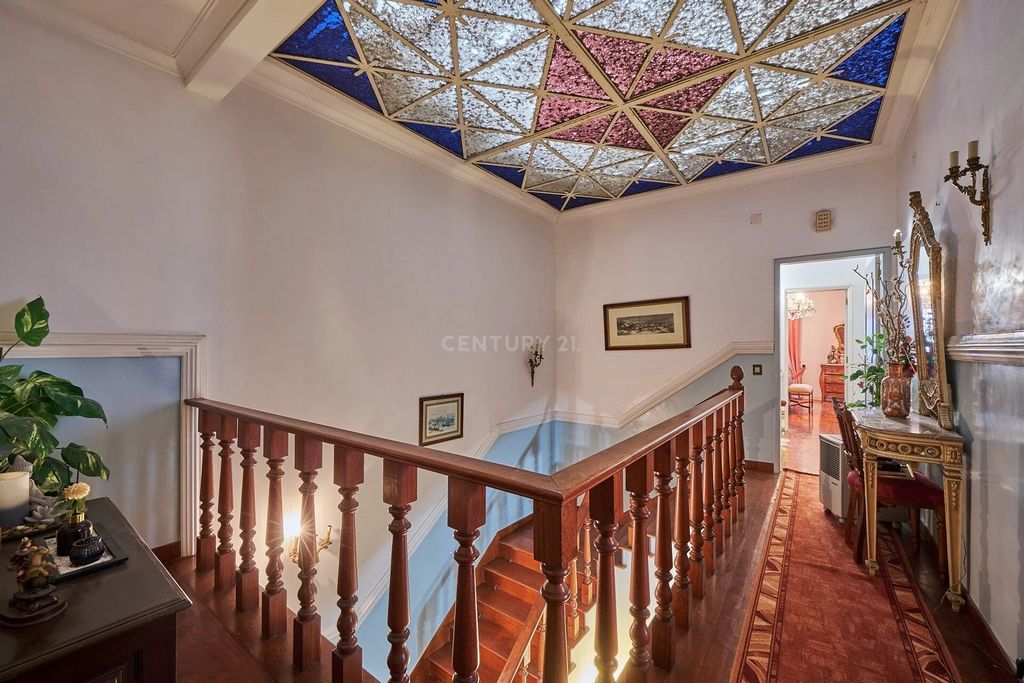
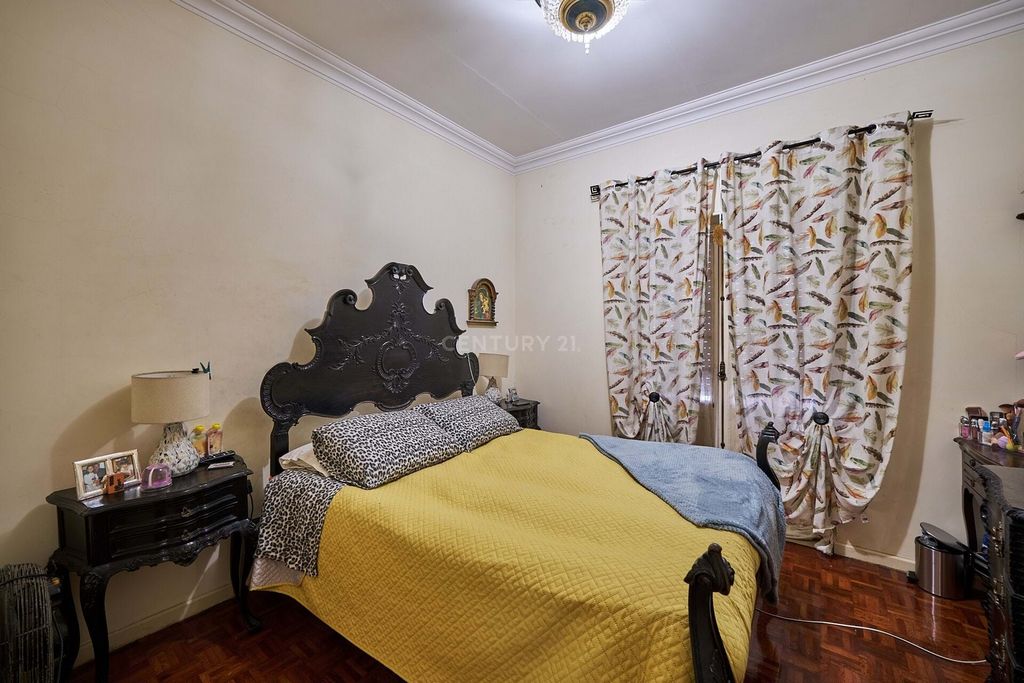
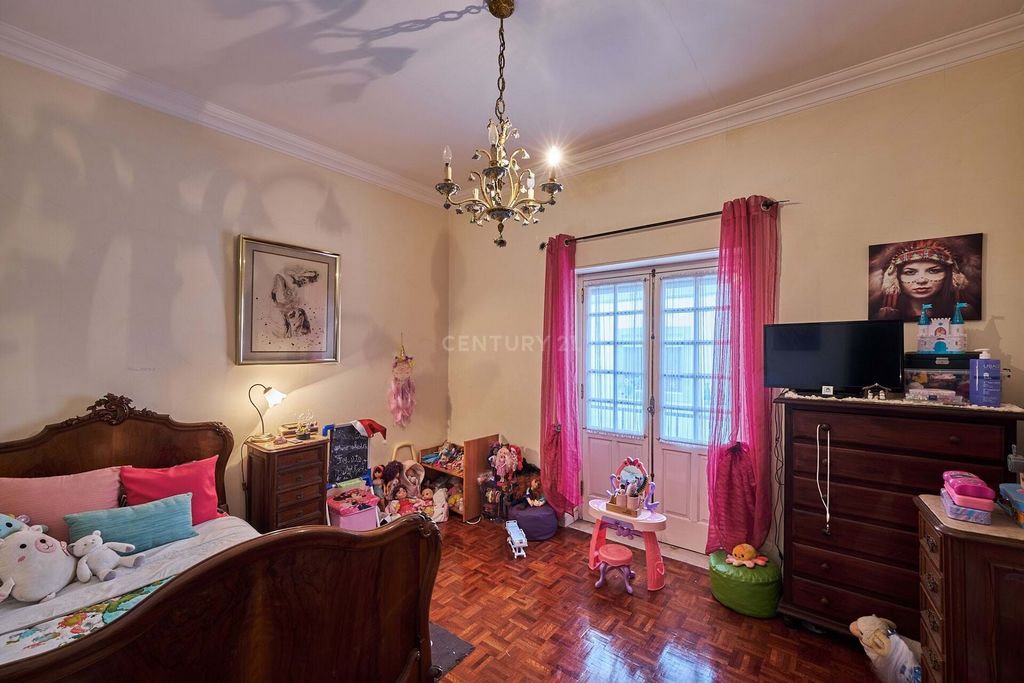
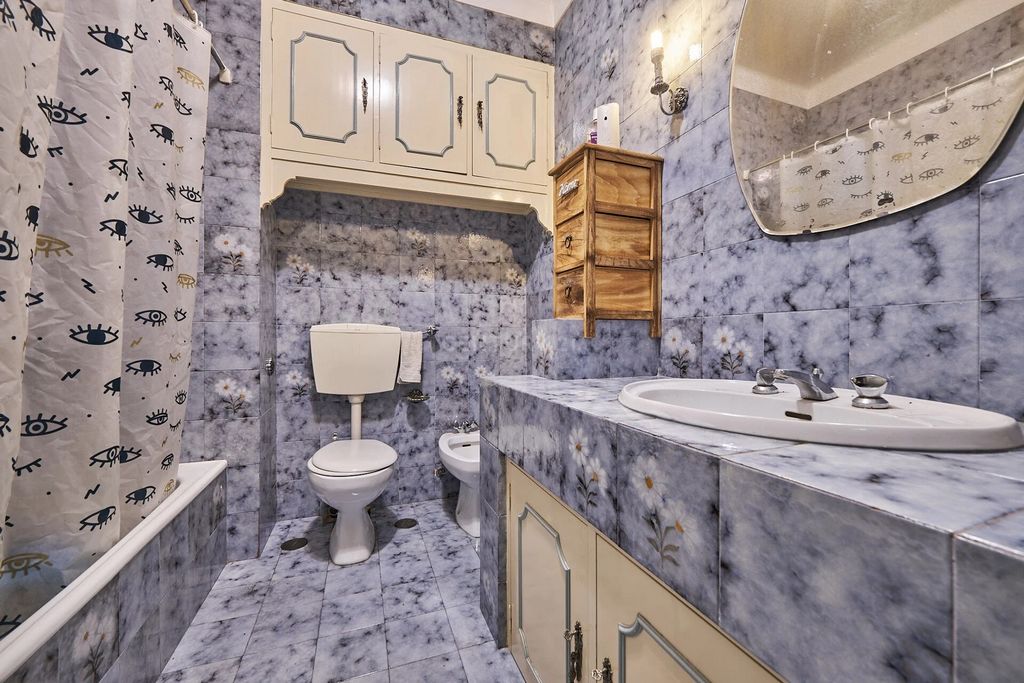
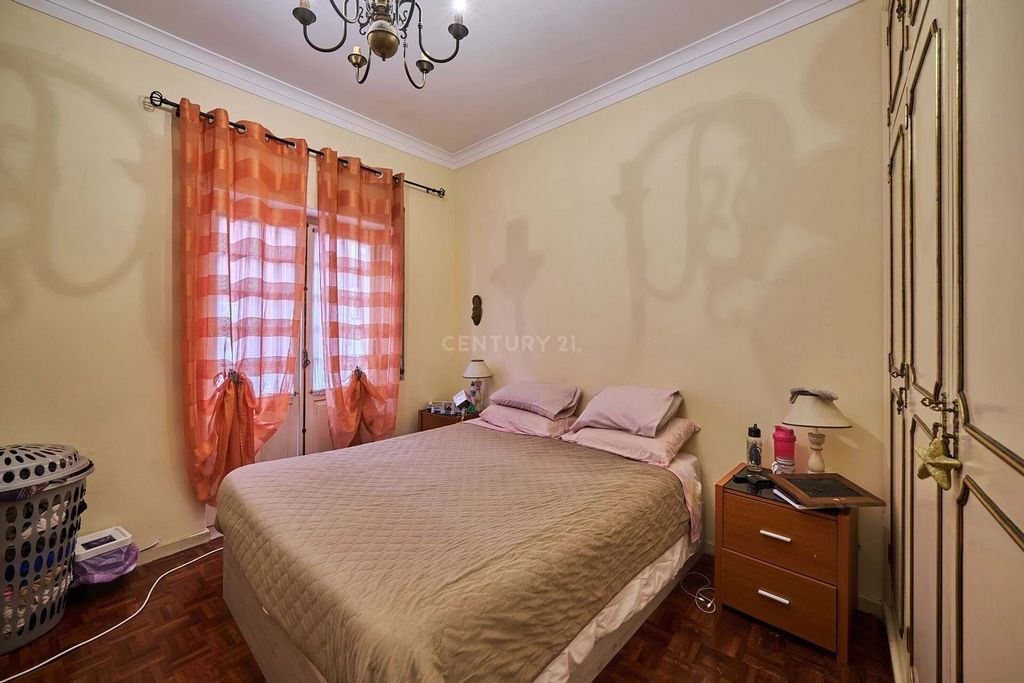
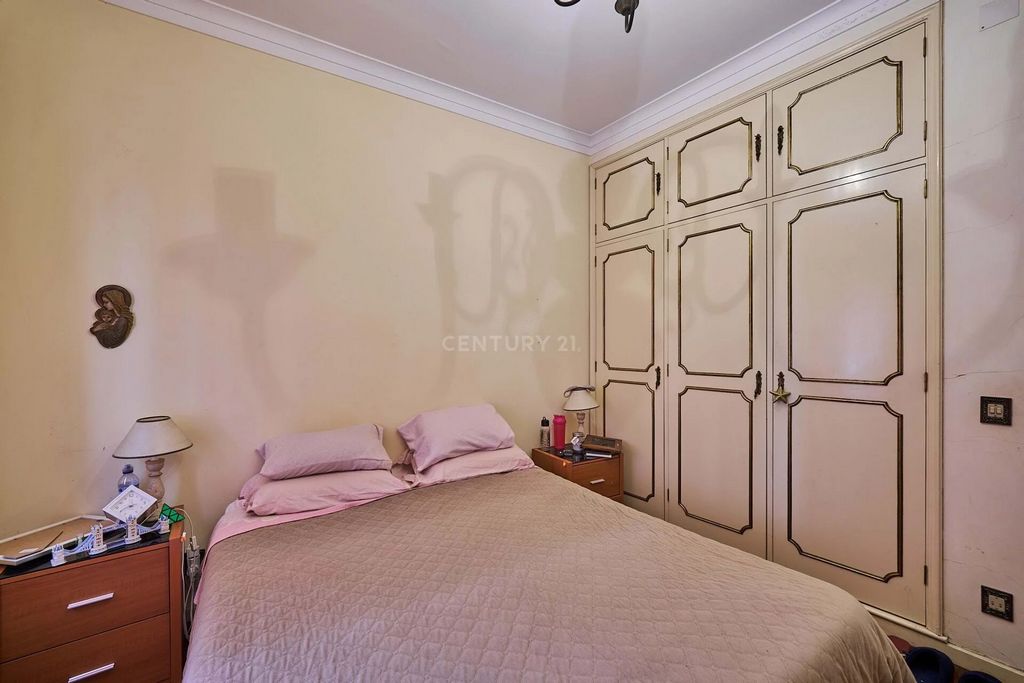
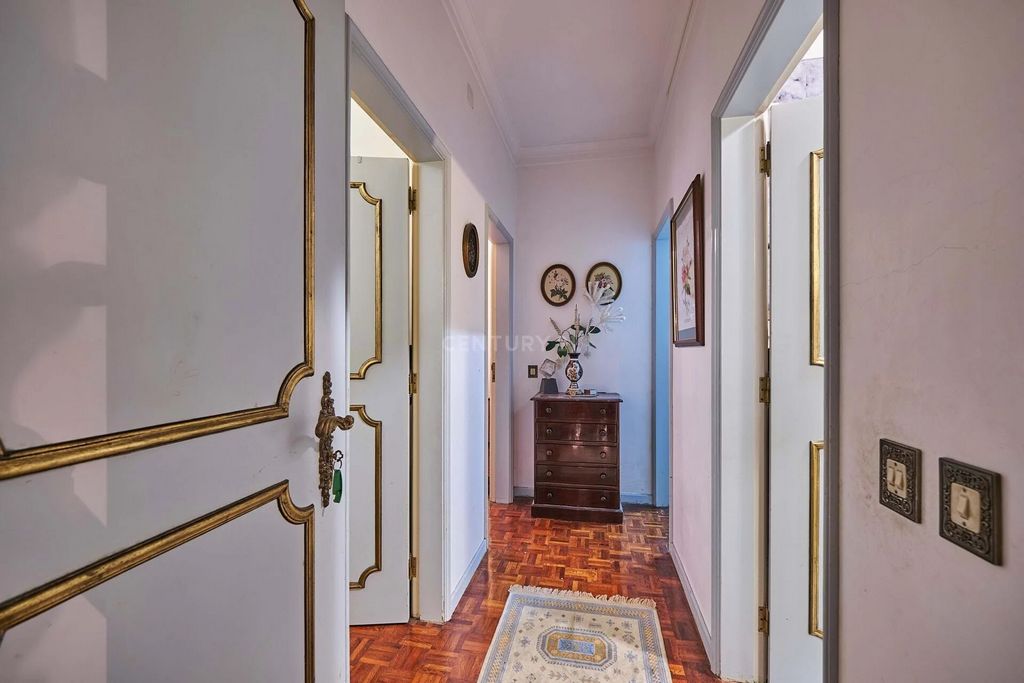
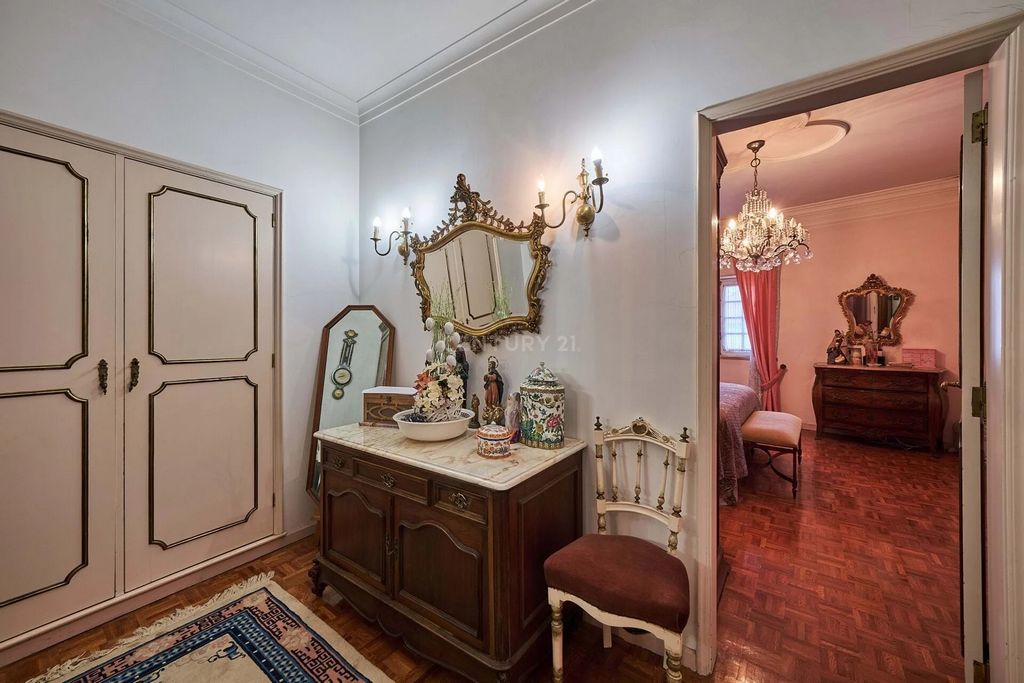
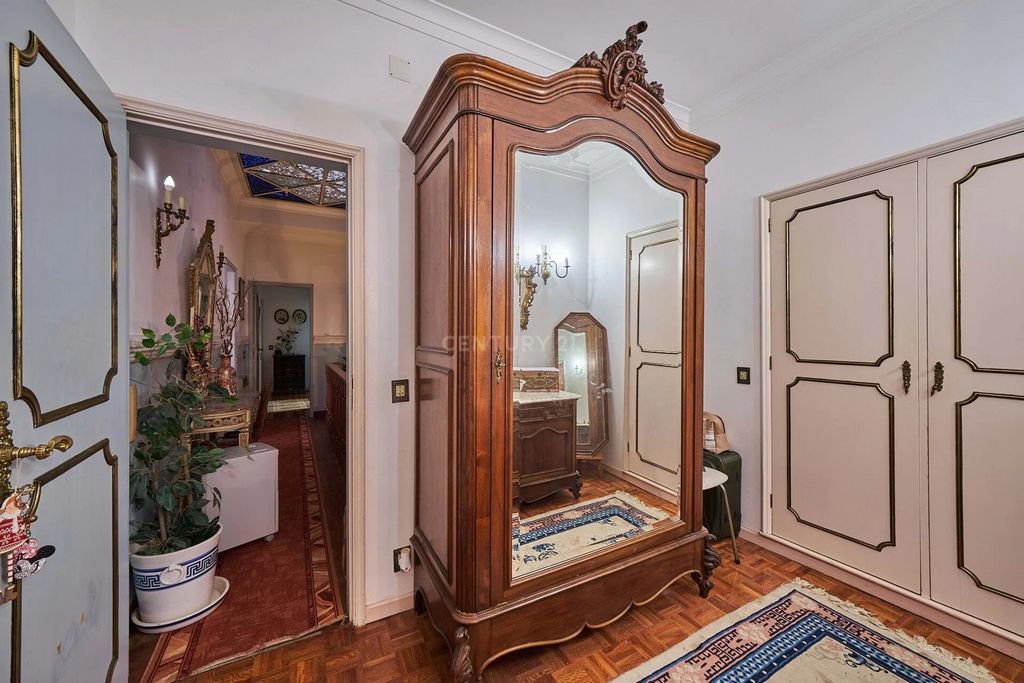
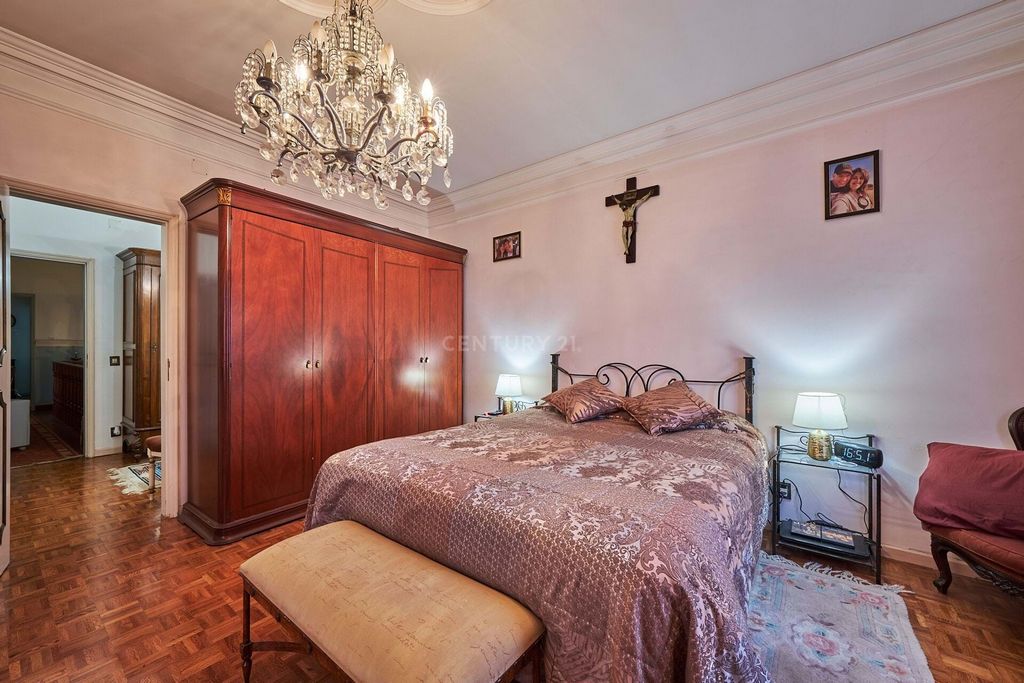
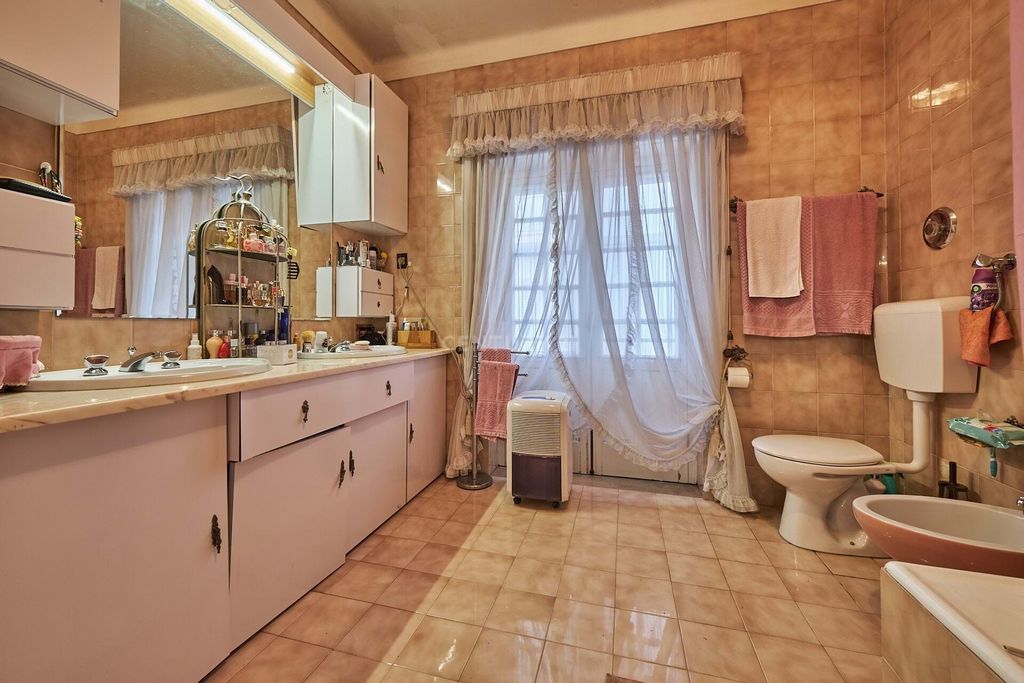
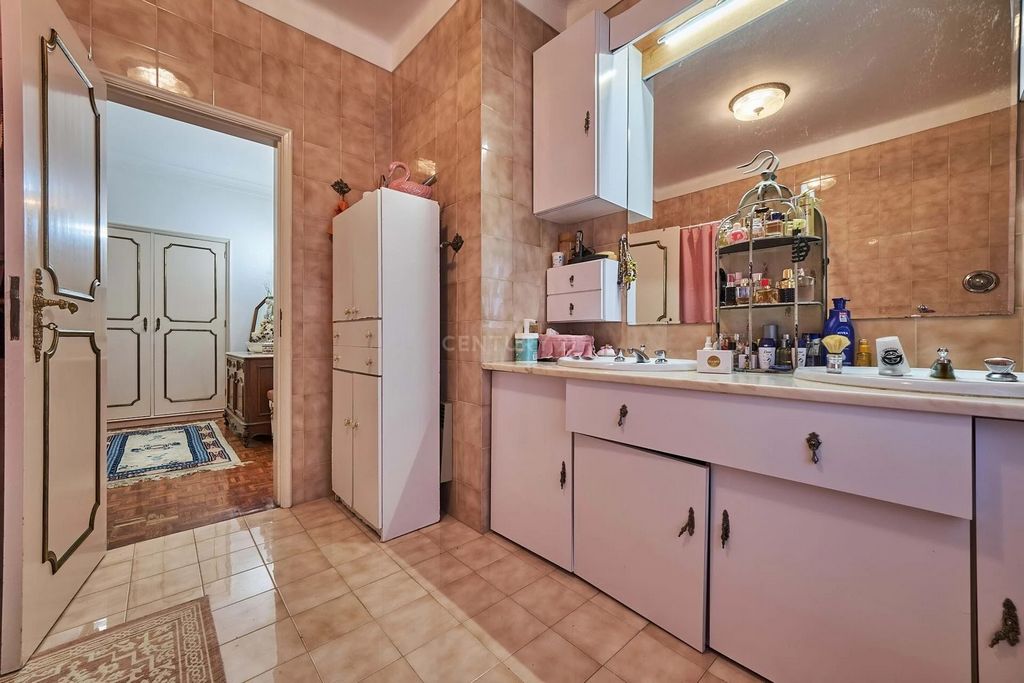
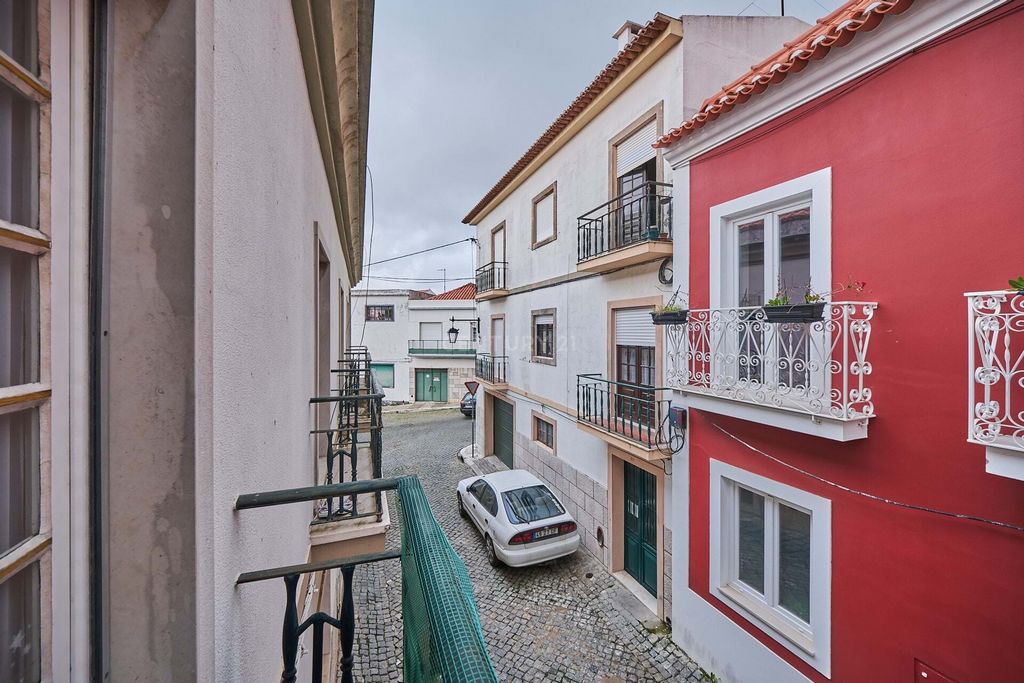
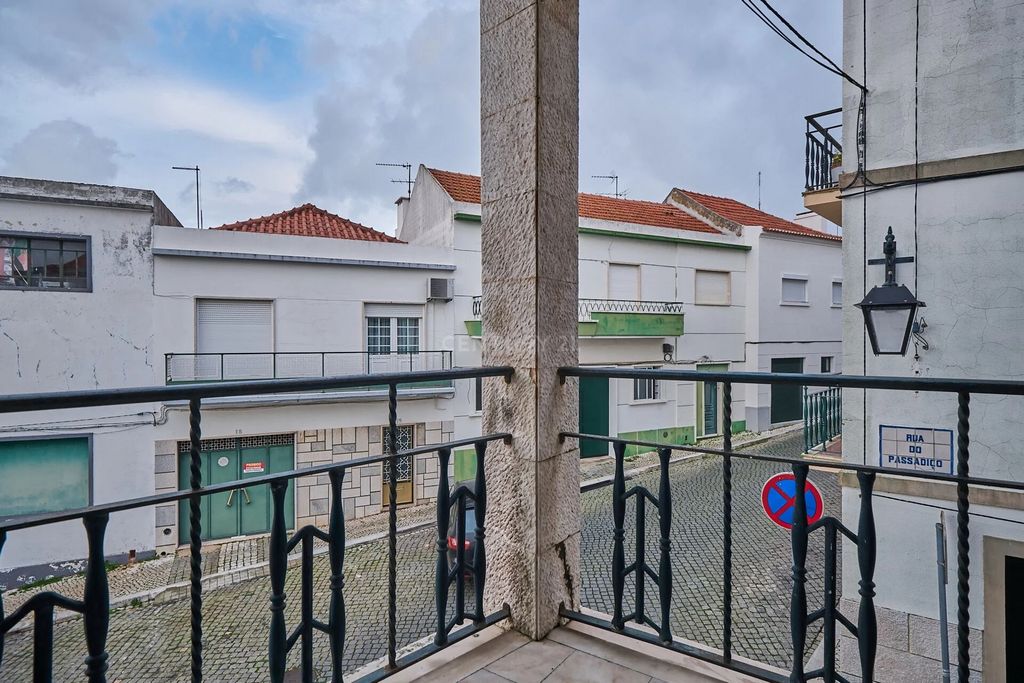
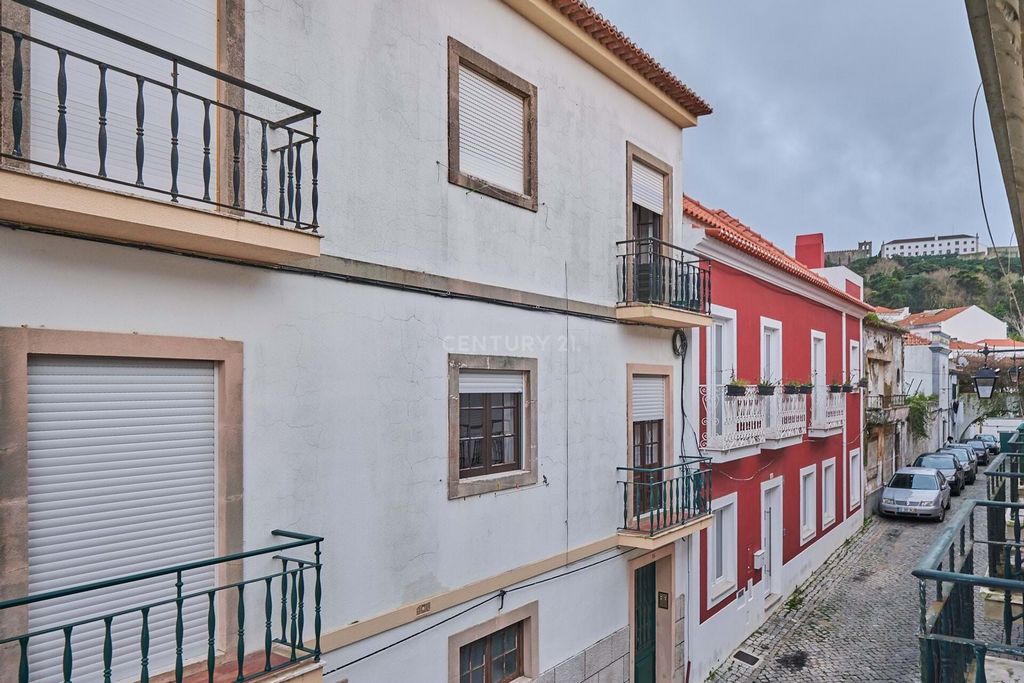
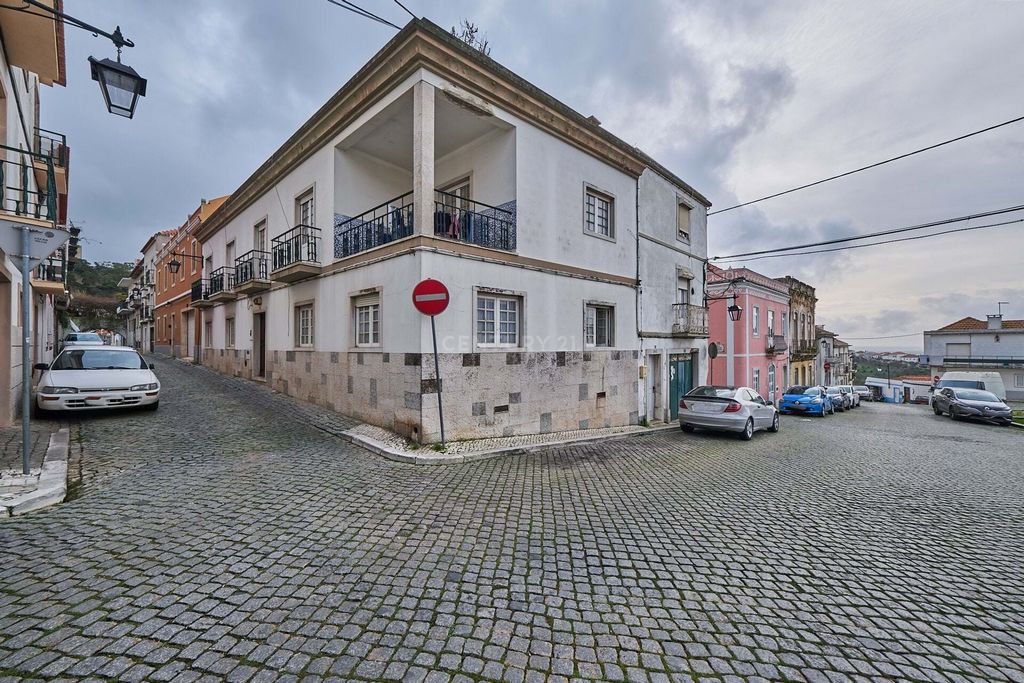
- Dining and living room with fireplace and central heating
- machine room or laundry room
- bathroom
- kitchen with pantry
- bedroom or living room1 ° floor- 3 bedrooms
- Suite with dressing room and bathroom
- Storage room
- BathroomThis village, located in one of the foothills of the Serra da Arrábida, has attracted, over the centuries, the various peoples who passed through the Iberian Peninsula.It is believed that it owes its name to the Romans, more specifically to a praetor surnamed Palma, and to the Arabs it owes the construction of the castle at its highest point, from where the entire region stretching between the Sado and Tagus Rivers can be seen. with views of the Serra de Sintra.From this aspect we understand its importance at that time, for reasons of military strategy, as well as today when it is one of the best viewpoints in the entire region.Palmela was reconquered from the Moors by the 1st King of Portugal, D. Afonso Henriques (12th century) with the help of the Knights of the Order of Santiago de Espada, who rewarded him by donating these lands for settlement and defense. In the century. In the 15th century, a Convent was founded inside the Castle, which served as the Headquarters of this Religious and Military Order, and which currently houses an Inn.Palmela is also an important wine region, where excellent quality table wines are produced, as well as a fortified wine known as Moscatel de Setúbal. It is this activity that gives rise to the town's most important festivities, the Harvest Festivals, which take place at the beginning of September, and include processions, shows and bullfighting in their program.Let yourself be enchanted and come visit us, we are waiting for you. Ver más Ver menos Je vous présente cette magnifique maison familiale, située au coeur du centre historique de Palmela, en plus de ses 230 m2 de construction à l'architecture audacieuse pour l'époque, vous pourrez également apprécier quelques finitions avec d'excellents matériaux comme le marbre, le laqué. portes de salle de bain spacieuses sans parler de la lucarne au centre de la maison, illuminant tout l'escalier qui mène au premier étage.La maison se compose d'un rez-de-chaussée et d'un premier étage avec un balcon dans la suite principale.Rez-de-chaussée:- Hall d'entrée
- Salle à manger et salon avec cheminée et chauffage central
- local technique ou buanderie
- salle de bain
- cuisine avec cellier
- chambre ou salon1° étage- 3 chambres
- Suite avec dressing et salle de bain
- Pièce de stockage
- Salle de bainCe village, situé sur l'un des contreforts de la Serra da Arrábida, a attiré, au fil des siècles, les différents peuples qui sont passés par la péninsule ibérique.On pense qu'il doit son nom aux Romains, plus précisément à un préteur nommé Palma, et aux Arabes il doit la construction du château à son point culminant, d'où l'on peut admirer toute la région qui s'étend entre le Sado et le Tage. vu. avec vue sur la Serra de Sintra.De cet aspect, nous comprenons son importance à cette époque, pour des raisons de stratégie militaire, ainsi qu'aujourd'hui où c'est l'un des meilleurs points de vue de toute la région.Palmela a été reconquise aux Maures par le 1er roi du Portugal, D. Afonso Henriques (XIIe siècle) avec l'aide des chevaliers de l'Ordre de Santiago de Espada, qui l'ont récompensé en faisant don de ces terres pour l'établissement et la défense. Au siècle. Au XVe siècle, un couvent fut fondé à l'intérieur du château, qui servait de siège à cet ordre religieux et militaire, et qui abrite actuellement une auberge.Palmela est également une région viticole importante, où sont produits des vins de table d'excellente qualité, ainsi qu'un vin fortifié connu sous le nom de Moscatel de Setúbal. C'est de cette activité que naissent les festivités les plus importantes de la commune, les Fêtes des Vendanges, qui ont lieu début septembre et comprennent à leur programme des processions, des spectacles et des courses.Laissez-vous enchanter et venez nous rendre visite, nous vous attendons. Moradia de época T5 situada em pleno Centro Histórico de Palmela.Área total de 230 m2 de construção.
Apesar de se tratar de uma construção de 1980, a sua Arquitetura prima por um certo arrojamento para a época;
Suíte com closet e casa de banho privativa,
Lavandaria,
Copa junto á cozinha,
Claraboia com Vitrais, no centro da casa, iluminando o acesso ao primeiro andar,
Chão de Mármore,
Hall de entrada espaçoso,
Portas lacadas de branco,
Casas de banho espaçosas A casa é Composta por Rés-do-chão e primeiro andar com varanda na suíte principal.Rés-do-chão:
- Hall de entrada
- Sala de Jantar e de estar com Lareira e aquecimento central
- casa de maquinas ou lavandaria
- casa de banho
- cozinha com copa
- quarto ou sala de estar1º Andar
- 3 quartos
- Suíte com quarto de vestir e casa de banho
- Divisão para arrumos
- Casa de banhoEsta Vila localizada num dos contrafortes da Serra da Arrábida, atraiu ao longo dos séculos os vários povos que passaram pela Península Ibérica.Segundo se crê deve o seu nome aos Romanos, mais concretamente a um pretor de apelido Palma, e aos Árabes deve a construção do castelo no seu ponto mais alto, de onde se domina toda a região que se estende entre os Rios Sado e Tejo, avistando-se ainda a Serra de Sintra.Por este aspecto compreende-se a sua importância naquela época, por razões de estratégia militar, bem como nos dias de hoje em que é um dos melhores miradouros de toda a região.Palmela foi reconquistada aos Mouros pelo 1º Rei de Portugal, D. Afonso Henriques (séc. XII) com a ajuda dos Cavaleiros da Ordem de Santiago de Espada, que recompensou doando-lhe estas terras para povoamento e defesa. No séc. XV foi fundado um Convento no interior do Castelo, que serviu de Sede a esta Ordem Religiosa e Militar, e que actualmente alberga uma Pousada.Palmela é também uma importante região vitivinícola, onde se produzem vinhos de mesa de excelente qualidade, bem como um vinho generoso conhecido como Moscatel de Setúbal. É esta actividade que dá origem às mais importantes festividades da vila, as Festas das Vindimas que se realizam no início de Setembro, e incluem no seu programa cortejos, espectáculos e largadas de touros.Deixe-se encantar e venha visitar-nos, estamos á sua espera I present to you this magnificent family home, located in the heart of the Historic Center of Palmela, in addition to its 230 m2 of construction with a bold architecture for the time, you can also appreciate some finishes with excellent materials such as marble, lacquered bathroom doors spacious without mentioning the skylight in the center of the house, illuminating the entire staircase that leads to the first floor.The house consists of ground floor and first floor with a balcony in the main suite.Ground floor:- Entrance hall
- Dining and living room with fireplace and central heating
- machine room or laundry room
- bathroom
- kitchen with pantry
- bedroom or living room1 ° floor- 3 bedrooms
- Suite with dressing room and bathroom
- Storage room
- BathroomThis village, located in one of the foothills of the Serra da Arrábida, has attracted, over the centuries, the various peoples who passed through the Iberian Peninsula.It is believed that it owes its name to the Romans, more specifically to a praetor surnamed Palma, and to the Arabs it owes the construction of the castle at its highest point, from where the entire region stretching between the Sado and Tagus Rivers can be seen. with views of the Serra de Sintra.From this aspect we understand its importance at that time, for reasons of military strategy, as well as today when it is one of the best viewpoints in the entire region.Palmela was reconquered from the Moors by the 1st King of Portugal, D. Afonso Henriques (12th century) with the help of the Knights of the Order of Santiago de Espada, who rewarded him by donating these lands for settlement and defense. In the century. In the 15th century, a Convent was founded inside the Castle, which served as the Headquarters of this Religious and Military Order, and which currently houses an Inn.Palmela is also an important wine region, where excellent quality table wines are produced, as well as a fortified wine known as Moscatel de Setúbal. It is this activity that gives rise to the town's most important festivities, the Harvest Festivals, which take place at the beginning of September, and include processions, shows and bullfighting in their program.Let yourself be enchanted and come visit us, we are waiting for you.